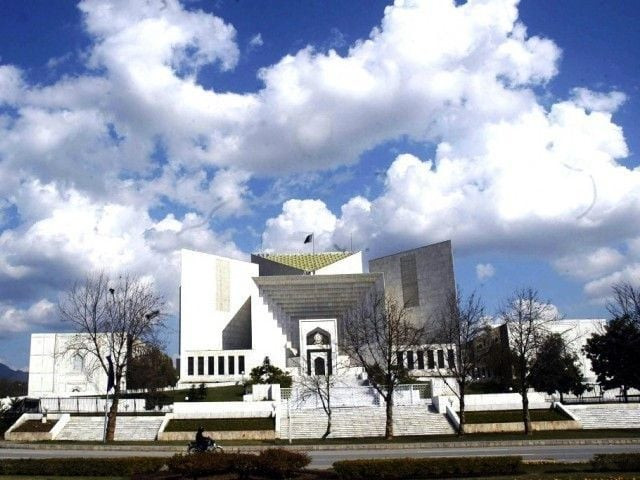SC seeks arguments from dissident PTI members
Chief Justice Bandial says loyalty of members is basic right of political parties

The Supreme Court on Tuesday observed that the loyalty of members was the basic right of political parties, ordering dissident Pakistan Tehreek-e-Insaf members of the Punjab Assembly to come prepared on the point of voting for PML-N against party policy.
A three-member bench comprising Chief Justice Umar Ata Bandial, Justice Aminuddin Khan and Justice Muhammad Ali Mazhar heard petitions filed by dissident PTI members from the Punjab Assembly challenging the Election Commission of Pakistan’s decision to disqualify them for defection.
CJP Bandial said, “It is the fundamental right of political parties that its members remain loyal to it.”
The ECP had disqualified 25 dissident PTI MPAs on May 20 on the grounds that they deviated from the party policy by voting in favour of PML-N’s Hamza Shehbaz in the election for the Punjab chief minister.
The move came after the SC’s decision on a presidential reference seeking interpretation of Article 63A – disqualification of lawmakers over defection.
The SC had ruled that votes cast against party policy “cannot be counted and must be disregarded, and this is so regardless of whether the party head, subsequent to vote, proceeds to take, or refrains from taking, action that would result in declaration of defection”.
At the outset of the hearing, a lawyer representing the petitioners argued that the PTI had not issued any instructions for the Punjab chief minister’s election, adding that Punjab Assembly Speaker Chaudhry Pervaiz Elahi, who was the joint candidate of the PTI and the PML-Q for the slot, had boycotted the election session.
Justice Mazhar observed that the petitioners had voted for the PML-N despite being members of the PTI.
Chief Justice Bandial asked, “Why did you attend the meeting when your party boycotted it?”
The CJP noted that the Supreme Court had already declared defection in the interpretation of Article 63A “as cancer”. “It’s about a person’s conscience.”
Dissident PTI member Uzma Kardar, who was elected on a reserved seat for women, came to the rostrum, saying that the PTI had ousted her from the party and her case was different from that of defection.
CJ Bandial observed that reserved seats in an assembly were allocated to political parties according to the proportional representation in the house.
“It will have to be seen that when the PTI ousted you from the party, why you remained an assembly member,” he added.
Kardar replied that she had worked hard for the PTI by putting in her blood and sweat. “I am still a member of the party.”
She claimed that she had been ousted due to “internal conspiracies” within the PTI. “Yet I remained a parliamentarian.”
Justice Mazhar asked whether the ECP did not know that she had been ousted from her party.
“All documents are present with the ECP,” she replied.
The CJP said that the SC had already made it clear that the votes of dissident lawmakers would not be counted.
Kardar said, “For a year, they kept saying that support Buzdar and things did not work out so they went the other way.”
After her statements, the court directed the petitioners to prepare in the point of voting for the PML-N against their party’s policy and adjourned the hearing for an indefinite period.



















COMMENTS
Comments are moderated and generally will be posted if they are on-topic and not abusive.
For more information, please see our Comments FAQ